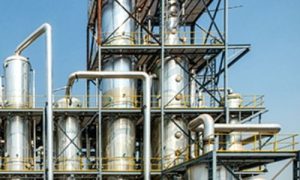Pakistan Govt moves to deregulate wheat, sugar sectors

Pakistan is preparing to fully deregulate the wheat and sugar sectors under IMF-backed reforms, ending government control and allowing market forces to set prices. Finance Minister Muhammad Aurangzeb said the state will exit the entire value chain to improve efficiency. He also highlighted rising foreign investor interest and ongoing structural reforms, with the private sector expected to drive future economic growth.
KARACHI: The government is preparing to deregulate the wheat and sugar sectors — a key structural reform under the International Monetary Fund’s (IMF) Extended Fund Facility — though a formal timeline has yet to be announced.
Finance Minister Muhammad Aurangzeb, speaking at the 9th Edition of The Future Summit on Wednesday, said both sectors would be fully deregulated, ending government intervention across the value chain.
“Deregulation has to be end-to-end; it’s not possible for the government to control one part of the chain and leave the rest to the market,” he said. “The government has to come out of the entire value chain — that’s the direction we’re heading towards.”
The move would shift price determination from state-controlled support rates to market-based mechanisms of supply and demand. Analysts see it as a major step toward improving efficiency in the agriculture sector, which has long been plagued by distortions from subsidies and price controls.
Aurangzeb says market forces to set prices under IMF-backed reform plan
Mr Aurangzeb said Pakistan now had a “golden opportunity” to benefit from shifting global dynamics, with traditional allies including China, the United States, Saudi Arabia and the Gulf Cooperation Council expressing renewed interest in investment.
“They’ve helped us through bilateral support and funding, and now they are talking about trade and investment,” he said, stressing that these opportunities must be led by the private sector. “The government’s role is to provide an enabling ecosystem; it’s the private sector that will drive growth.”
The minister cited recent engagements with the US Chamber of Commerce, the US-Pakistan Business Council and Saudi business leaders as signs of growing investor interest in Pakistan. “Whether it’s CPEC Phase 2.0 or new trade opportunities, I’ll continue meeting business communities abroad to promote investment and awareness about Pakistan’s potential,” he added.
Mr Aurangzeb also hinted at broader structural reforms being implemented across ministries, including the use of artificial intelligence in the Federal Board of Revenue to streamline tax processes and improve compliance.
Sindh Chief Minister Syed Murad Ali Shah, the chief guest at the event, underscored the need for innovation and adaptability in governance and industry. “The future belongs to those who adapt fastest to changing technologies,” he said. “The public sector will provide the infrastructure, but it is the private sector that must innovate and grow.”
Climate Change Minister Musadik Malik, speaking on social and economic inclusivity, said equitable access to opportunities was essential for sustainable growth. “The death of hope is the worst thing, and hope survives only in a competitive environment. Education, values, and equal opportunities are the real drivers of progress,” he said.
The summit, attended by policymakers, industry leaders, and business executives, focused on technology-driven growth, investment, and structural reforms as pathways to Pakistan’s economic stability.
To Read more about Sugar Industry continue reading Agriinsite.com
Source : Dawn














